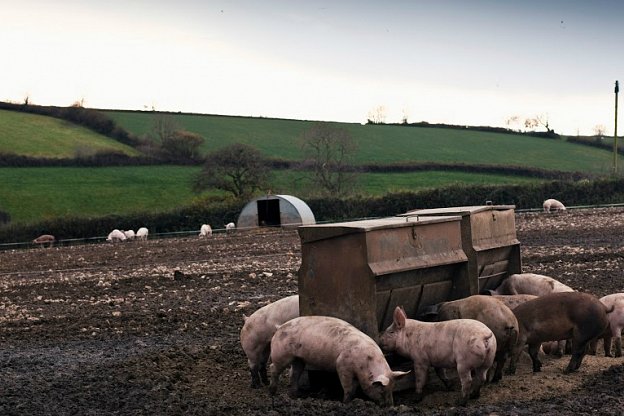The real meaning of free range and other food labels
- March 10, 2015
All of the meat we serve in our dishes is free range, always has and always will be. It’s supplied by the family owned Devon Rose based in Seaton. Richard talks us through the confusion around standards and labeling on pork products, and how you may think you’re buying ethicially sourced pork, whereas the truth is somewhat different…
When you buy pork it’s easy to be confused by what you see on the packet. So what really points you to the most ethically produced meat, and what is merely marketing? Whilst there’s no legal definition of free-range pork, there is accepted industry terminology. Here’s a brief guide:
Free range…
Highest welfare standards. Slowest growing, most expensive to raise but arguably the best tasting.
These pigs are born outside in fields, and they remain outside until they’re sent for slaughter. They’re provided with food, water and shelter and are free to roam within defined boundaries. Free-range pigs have very generous minimum space allowances which are worked out according to the soil conditions and rotation practices of the farm. Breeding sows are also kept outside in fields for their productive life. Look for free-range pork which is RSPCA Freedom Food accredited to ensure that you are choosing the most welfare-friendly product.
Outdoor bred…
Lowest welfare standards. Moved as quickly as possible indoors for factory fattening. The cheapest UK outdoor system.
These pigs are born outside in fields where they are kept until they are weaned. After weaning, the piglets are brought inside and put in units for finishing.
Outdoor reared…
Medium welfare standards. Factory-fattened and quickly sent indoors. Cheaper to raise.
These pigs are born outside in fields where they are kept for about half their lives. They are then brought inside for finishing.
Red Tractor…
This does not confer higher welfare standards.
Unlike the RSPCA’s Freedom Food, the red tractor scheme does not accredit any of these terms. It only ensures that producers work in excess of minimum legal requirements for food safety, animal welfare, environmental protection and traceability.
In essence, only the term “free range” ensures the best welfare standards.
